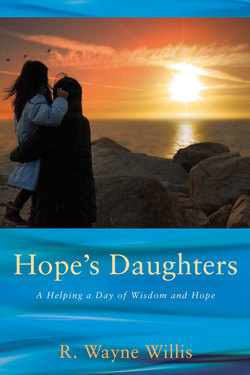Читать книгу Hope’s Daughters - R. Wayne Willis - Страница 90
На сайте Литреса книга снята с продажи.
March 19
Оглавление“All we have in life is what we notice.”
Leonard Pitts, columnist for the Miami Herald, tells about an eighteen-mile hike he took to raise money against breast cancer. That day he saw things on the hike that he drove by daily on his commute but had never seen—a lake not quite visible from the road; a sidewalk curving gracefully beneath an overhang of trees; a quaint little wooden footbridge over a hollow. He surmised: “We’re all going to the same destination. The only difference is in what we choose to see along the way.”
Victor Frankl saw Nazis strip concentration camp prisoners of everything that symbolized their previous lives. Families and friends got separated, clothing got ripped off and thrown away, possessions got taken away, and bodily hair got shorn. But Frankl noticed something else. He saw a few people, in the face of certain doom, walking through the huts comforting others, even giving away their last morsel of bread.
Frankl survived the Holocaust and went on to write one of the great books of the twentieth century, Man’s Search for Meaning, in which he said of those he had noticed giving away their last piece of bread: “They offer sufficient proof that everything can be taken away from a man but one thing, the last of the human freedoms—to choose one’s attitude in any given set of circumstances, to choose one’s own way.” 69
What we bring to life is more potent than what life brings to us. I believe Zen master Richard Baker Roshi was right when he said that all we have in life is what we notice. Or as Marcus Aurelius, the Roman philosopher-king put it over eighteen centuries ago: “The color of our thought dyes our world.”
